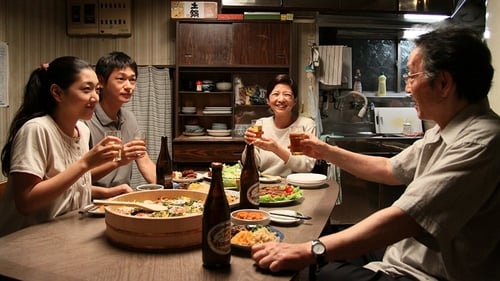Yang Yong-hi
出生 : 1964-11-11, Osaka, Japan

Self
Confronting half of her mother’s life—her mother who had survived the Jeju April 3 Incident—the director tries to scoop out disappearing memories. A tale of family, which carries on from Dear Pyongyang (YIDFF 2005), carving out the cruelty of history, and questioning the precarious existence of the nation-state.

Director
Confronting half of her mother’s life—her mother who had survived the Jeju April 3 Incident—the director tries to scoop out disappearing memories. A tale of family, which carries on from Dear Pyongyang (YIDFF 2005), carving out the cruelty of history, and questioning the precarious existence of the nation-state.

Screenplay
日本に住むリエと帰国事業で北朝鮮へ帰った兄ソンホ。離れて暮らして25年が経ち、ソンホが病気の治療のために日本に帰国することになった。期間は3か月。家族や仲間はソンホとの再会を喜ぶ一方、担当医には3か月では治療は不可能と告げられる。しかし、滞在延長を申請しようとした矢先、本国から「明日帰国するよう」と命令が下り…。

Director
日本に住むリエと帰国事業で北朝鮮へ帰った兄ソンホ。離れて暮らして25年が経ち、ソンホが病気の治療のために日本に帰国することになった。期間は3か月。家族や仲間はソンホとの再会を喜ぶ一方、担当医には3か月では治療は不可能と告げられる。しかし、滞在延長を申請しようとした矢先、本国から「明日帰国するよう」と命令が下り…。

Self
"Goodbye, Pyeongyang" is co-production between South Korea and Japan Synopsis Director Yonghi Yang’s previous piece, “Dear Pyeong Yang”, has told of North Korean tales. This time, he brings in “Sun-hwa”, the sister of a brother who migrated to North Korean from Japan in the beginning of the 1970s. Through “Sun-hwa”, it shows the images of the immigrant generation as well as the generation that was born and raised in North Korea. Although ‘Sun-hwa’s growth stages are very typical, the specialty of the North Korean society is quietly shown. Through the process of establishing her identity in the North Korean society as an immigrant generation, North Korea isn’t portrayed as simply an unsociable society but as an area on earth which hold the universal image of the human society. This may be said to be producer “Yang”s special merit. The picture of family gives a normal everyday life view of the known-to-be different name, North Korea.

Director
"Goodbye, Pyeongyang" is co-production between South Korea and Japan Synopsis Director Yonghi Yang’s previous piece, “Dear Pyeong Yang”, has told of North Korean tales. This time, he brings in “Sun-hwa”, the sister of a brother who migrated to North Korean from Japan in the beginning of the 1970s. Through “Sun-hwa”, it shows the images of the immigrant generation as well as the generation that was born and raised in North Korea. Although ‘Sun-hwa’s growth stages are very typical, the specialty of the North Korean society is quietly shown. Through the process of establishing her identity in the North Korean society as an immigrant generation, North Korea isn’t portrayed as simply an unsociable society but as an area on earth which hold the universal image of the human society. This may be said to be producer “Yang”s special merit. The picture of family gives a normal everyday life view of the known-to-be different name, North Korea.

Screenplay
Documentary focuses on Sona, the daughter of the director’s brother who moved to North Korea from Japan in the early 1970s. Through Sona, the film shows the generation that migrated from Japan to North Korea and their offspring who were born and raised in North Korea.

Director
Documentary focuses on Sona, the daughter of the director’s brother who moved to North Korea from Japan in the early 1970s. Through Sona, the film shows the generation that migrated from Japan to North Korea and their offspring who were born and raised in North Korea.

Writer
Dear Pyongyang is a documentary film by Zainichi Korean director Yang Yong-hi (Korean: 양영희, Hanja: 梁英姬) about her own family. It was shot in Osaka Japan (Yang's hometown) and Pyongyang, North Korea, In the 1970s, Yang's father, an ardent communist and leader of the pro-North movement in Japan, sent his three sons from Japan to North Korea under a repatriation campaign sponsored by ethnic activist organisation and de facto North Korean embassy Chongryon; as the only daughter, Yang herself remained in Japan. However, as the economic situation in the North deteriorated, the brothers became increasingly dependent for survival on the care packages sent by their parents. The film shows Yang's visits to her brothers in Pyongyang, as well as conversations with her father about his ideological faith and his regrets over breaking up his family.

Cinematography
Dear Pyongyang is a documentary film by Zainichi Korean director Yang Yong-hi (Korean: 양영희, Hanja: 梁英姬) about her own family. It was shot in Osaka Japan (Yang's hometown) and Pyongyang, North Korea, In the 1970s, Yang's father, an ardent communist and leader of the pro-North movement in Japan, sent his three sons from Japan to North Korea under a repatriation campaign sponsored by ethnic activist organisation and de facto North Korean embassy Chongryon; as the only daughter, Yang herself remained in Japan. However, as the economic situation in the North deteriorated, the brothers became increasingly dependent for survival on the care packages sent by their parents. The film shows Yang's visits to her brothers in Pyongyang, as well as conversations with her father about his ideological faith and his regrets over breaking up his family.

Director
Dear Pyongyang is a documentary film by Zainichi Korean director Yang Yong-hi (Korean: 양영희, Hanja: 梁英姬) about her own family. It was shot in Osaka Japan (Yang's hometown) and Pyongyang, North Korea, In the 1970s, Yang's father, an ardent communist and leader of the pro-North movement in Japan, sent his three sons from Japan to North Korea under a repatriation campaign sponsored by ethnic activist organisation and de facto North Korean embassy Chongryon; as the only daughter, Yang herself remained in Japan. However, as the economic situation in the North deteriorated, the brothers became increasingly dependent for survival on the care packages sent by their parents. The film shows Yang's visits to her brothers in Pyongyang, as well as conversations with her father about his ideological faith and his regrets over breaking up his family.










